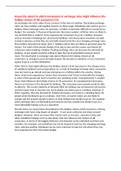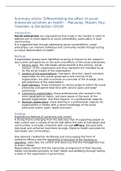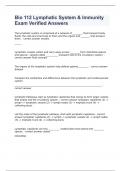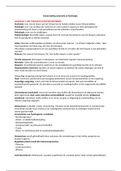Exam (elaborations)
Exchange Rates - 12 Mark Question Written Answer - Grade A
Assess the extent to which movements in exchange rates might influence the holiday choices of UK consumers [12] ANSWER TO EXAM QUESTION - Edexcel A Level Business Studies 2021
[Show more]








